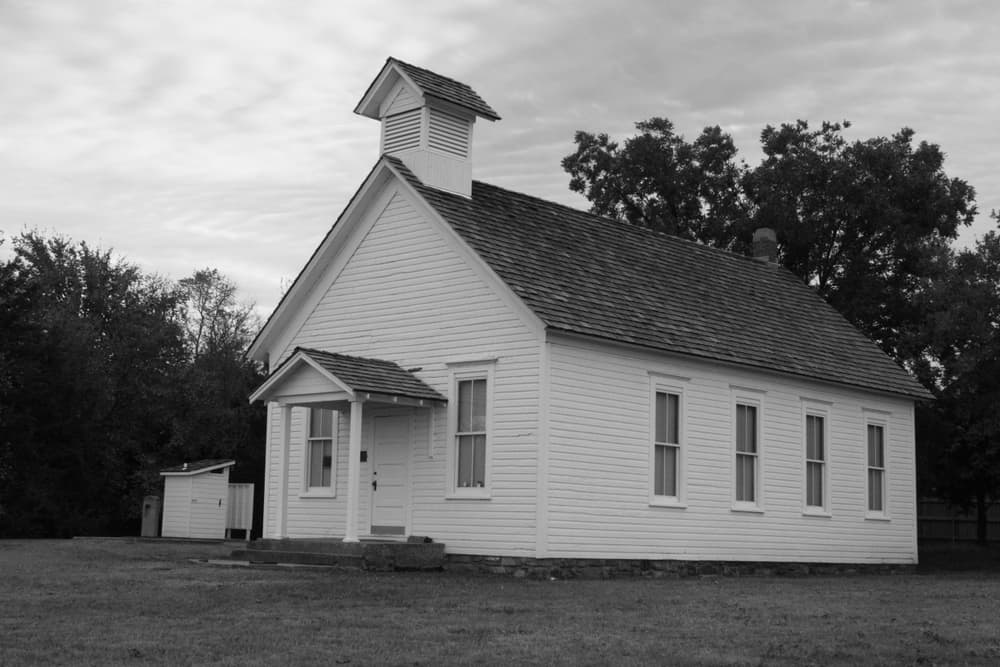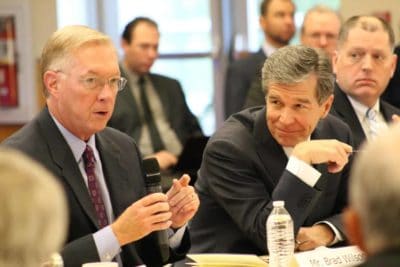

“Race remains the issue that no one wants to address, even though it permeates almost every aspect of society — especially in the South.”
That line appears in a report released last week by a new regional nonprofit, E Pluribus Unum, that set out on a year-long effort to engage residents of Southern states in conversations about the influences of race in their lives and communities. If its findings from small-group discussions, focus groups, and a survey are not altogether surprising, they describe a sobering reality of persistent divisions.
“Black and white respondents have almost diametrical views on the historical and present-day impacts of racism on society,” says the report, titled Divided by Design. “A number of black respondents said that racism’s historical impact is continually disregarded by the media and by white people, and that they still constantly battle stereotypes in the workplace and in social interactions, citing personal, matter-of-fact experiences as evidence of the enduring impacts of racism. The majority of our white respondents did not claim any responsibility for racist systems; many blamed black residents for the challenges facing their community.”
Former New Orleans Mayor Mitch Landrieu founded E Pluribus Unum as a vehicle for confronting the fault lines of race and class in the American South arising from its legacies of slavery and legalized segregation. Landrieu, a Democrat who still believes in the post-civil rights vision of a “new South,” vaulted to national attention in delivering a history-laden speech as he completed the removal of four confederate monuments in his city. The Emerson Collective, a philanthropy led by Laurene Powell Jobs, whose husband Apple CEO Steve Jobs died eight years ago, serves as a collaborator in the E Pluribus Unum initiative.
The report notes the “strong sense of community, optimism and shared values’’ across the South. In this moment of polarized politics, the report refers only briefly to the Trump presidency and Democratic-Republican differences in defining racial attitudes today. Still, it stresses that “courageous” political leadership is required to rectify racial and class divides.
Saying that “education and equality go hand in hand,” the report supports increased investment in public schools. It also cites recent research by the Southern Poverty Law Center, which reported that two out of five teachers say their own state “offers insufficient support for teaching about slavery.”
“Southern citizens view education as a critical tool for upward mobility,” says the report, “it is well-documented that the education one receives and the ZIP code one is born in are strong indicators for later life outcomes. Underfunded public schools are themselves a system of oppression for students most frequent in low-income communities and communities of color.”
Among the 28 cities and towns visited by the E Pluribus Unum researchers was Charlotte, where they conducted focus groups of college-educated black men and non-college-educated white and black women. “North Carolina, a state that once sent more Confederate soldiers into the Civil War than any other Southern state, has moved to embrace its diversity, a step which Charlotte’s population reflects,” says the report. While not a full community sample, the three discussion groups cited “race as a powerful dividing line” in the city.
The report says the college-educated black men were optimistic about racial dynamics and economic opportunity in Charlotte. The black women, however, came across as pessimistic, with one saying that “you cannot get away’’ from racism. The white women, says the report, were optimistic about the city’s economic future but looked suspiciously at economic and political gains by black Charlotte residents — “They believed that discussion of the city’s racist history would be harmful and suggested that the only productive path forward on the issue is for the black community to ‘get over it.’”
Indeed across the South, says the report, “many white people lack an understanding of the scale of racism in America, including our racial history and how it still permeates today’s institutions. As a result, racism is often too narrowly defined as overt individual actions rather than systemic injustices. … Most white people we spoke to described racism as personal acts of malice, while most people of color spoke of the more harmful impacts that they face within biased systems.”
The road to the shared-future common ground that Landrieu seeks for the South will no doubt be long, winding, and potholed. After all, the report itself acknowledges that conversations around race often produce frustration over what to do next. And yet, along the road, public schools and colleges campuses stand as potent fueling stations to propel Southerners toward common ground in their region’s modern racial and ethnic diversity.
Full disclosure: Early in my journalism career in New Orleans, I reported on Mayor Moon Landrieu, father of Mitch. Over the course of his political career as a state legislator, lieutenant governor, and mayor, Mitch and I would meet from time to time. I have joined a panel of “academic partners” to E Pluribus Unum.


